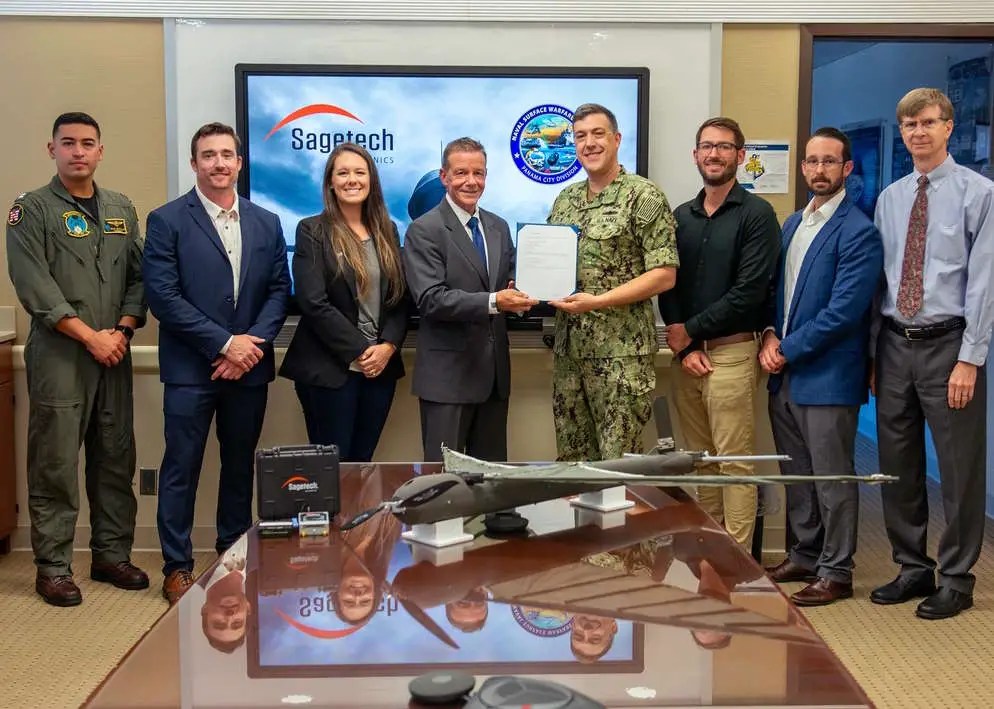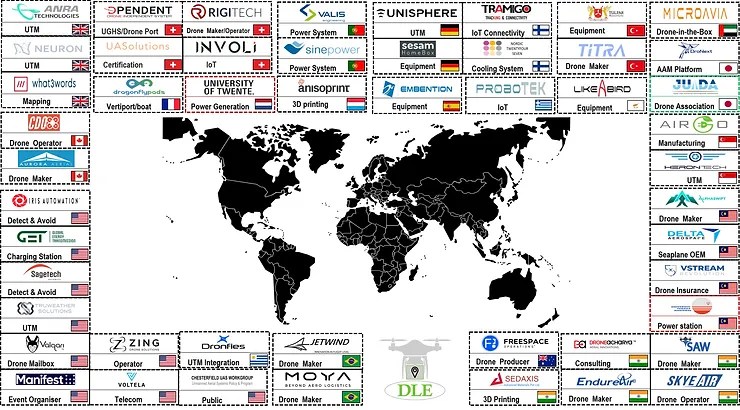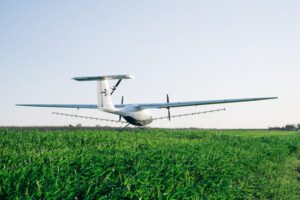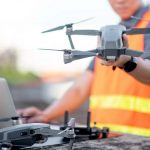I am Excited about Global Autonomous Corporation
We know the names of the businesses that handle logistics off the top of our heads, FedEx and UPS, are the names most are familiar with. A big part of Amazons competitive advantage is its ability to transport goods from A to B efficiently.
Disruptor companies will come along and uproot the current ways of doing things. Businesses undergo a life -cycle. At one time K-Mart reigned supreme until Wal-Mart and Target came along with a better proposition.
Other times things really get shaken up, the internet is a perfect example. Amazon causing many brick and mortar business to either adapt or fail, certainly disrupted many businesses.
Are drone deliveries about to have their mainstream moment? The technology does seem to be reaching a tipping point in achieving scalability. The companies that solve the problems plaguing drone deliveries, could potentially stand to make an absolute fortune for their investors.
Hub and Spoke
Revelations come about in industries, from time to time, disrupting the current way of doing business. One perfect example would be the hub and spoke model of shipping.
The hub is the central location from where you are delivering packaging to the smaller branches, called the spokes.
This idea made these companies very successful because it was the best way of doing things.
Mesh Network
Enter, Global Autonomous Corp. AKA Global Autonomous Corporation, and the mesh network, what could be the future of delivery.
The mesh network relies on many different nodes, to make sure that packages get delivered as efficiently as possible.
Drone delivery has presented many challenges, the companies that help solve the issues with scalability will be rewarded greatly.
The delivery drone market is expansive. Companies, such as DroneUp that have teamed up with Walmart, to deliver goods, have grown exponentially from where they were a few years ago.
Many drone programs have been plagued by poor results. GAC hopes to have the answer to that problem with their drones that are essentially, flying batteries. The team that designed these drones came from industry leaders such as Tesla and even the likes of NASA.
The design of the drones that allow for longer flight will always be top priority. Incorporating lighter and faster charging batteries could further push drones into a new stage of utility.
Global Autonomous Corp
The information we know so far is the Alpine 4 Holdings, the parent company of Vayu Aerospace and Identified Technologies has created an App that they hope will solve issues plaguing the delivery industry.
Kent Wilson, the CEO, recently discussed testing out an extensive network of drone deliveries in Dubai. Dubai is very supportive of drone deliveries, and they are trying to implement a program where thousands of drones could be flying overhead at any given time.
Vayu makes a range of wholly US made drones. They are a leader in VTOL technology, Vertical Take- off and Landing technology. The G1 has a 13 foot wingspan and is useful for many different long range uses.
The company wants to be a leader in autonomous drones, which have the capability of being controlled from a laptop. The drones are equipped with advanced sensors to ensure safe operations.
Drone show companies already operate up to 5,000 drones per show, without incident.
Drone technology is of strategic importance to the US Military. Furthermore, I do believe that Vayu drones, and the variety they offer would be a perfect fit for the US Air Force drone program. The addition of the solid-state batteries only makes the choice stronger.
Nathan Grier, of Vayu, is a former leader of the 90th Missile Wing sUAS program, Air Force. The Pentagon is looking to spend up to $78M for a drone swarm program, known as AMASS. These connections cannot hurt.
Solid State Batteries
The next generation of drones will be built using solid-state battery technology from A4 subsidiary, Elecjet.
These batteries are revolutionary due to their durability and safety enhancements over lithium-ion batteries,
Drones manufactured with theses batteries could potentially continue to operate well beyond the ability of lithium-ion counterparts.
The batteries are also much lighter than lithium counterparts.
Conclusion
Vayu drones seem to have been purpose built to supply the military with some great options of cheaper drones, which is what they are looking for. The knucklebuster series of drones: Club, Wolverine, Mitigator are all designed to be “operationally disposable.”
These drones are purpose built for hostile situations. A4 has already been approved for SBIR3 certification, which means that the government should be looking to procure some of the items that Vayu and possibly the solid-state battery division offer.





